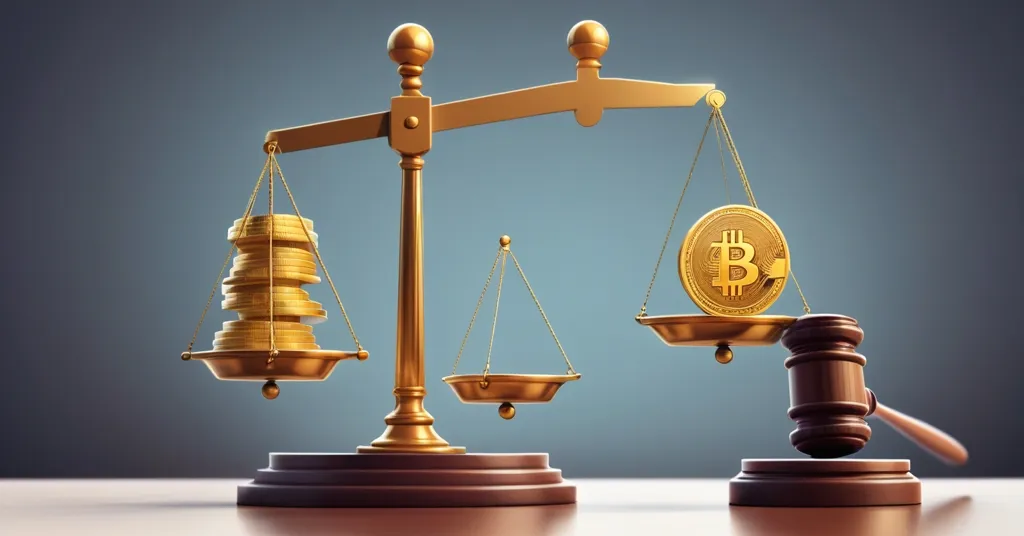US Lawmakers Demand SEC Preserve Trump’s Crypto Firm Records Amid Regulatory Concerns

US Lawmakers Urge SEC to Preserve Records on Trump-Linked Crypto Firm
Senator Elizabeth Warren and Representative Maxine Waters have raised alarms about former President Donald Trump’s financial ties to World Liberty Financial (WLFI), a cryptocurrency company that recently launched a stablecoin. In a letter to the Securities and Exchange Commission (SEC) dated April 2, 2025, the lawmakers expressed concerns that Trump’s involvement could influence regulatory decisions, potentially compromising the integrity of the SEC and the broader cryptocurrency market.
- Warren and Waters urge SEC to preserve Trump-WLFI records
- Concerns over Trump’s influence on crypto regulations
- WLFI launches USD1 stablecoin
- Trump’s crypto initiatives include stablecoin and memecoin
- SEC leadership changes under Trump
- Paul Atkins nominated as next SEC chair
Senator Elizabeth Warren, a prominent figure in financial regulation, and Representative Maxine Waters, known for her advocacy in financial services, have penned a letter to the SEC, urging the preservation of all records related to Trump’s financial ties to WLFI. Their concern stems from the potential for Trump’s stake in the company to sway regulatory decisions in his favor. “The financial interest that the Trump family has in World Liberty Financial presents an unprecedented conflict of interest that has the potential to shape the Trump Administration’s oversight — or absence of oversight — of the cryptocurrency industry,” the lawmakers stated.
WLFI, a company with direct affiliations to Trump, Donald Trump Jr., and Eric Trump, has raised over $500 million through token sales. The company’s recent launch of the USD1 stablecoin on major blockchain networks marks a significant move into the cryptocurrency market. For those new to the crypto world, a stablecoin is a type of cryptocurrency designed to minimize volatility by pegging its value to a stable asset, like the US dollar. Trump’s involvement in WLFI extends beyond stablecoins; since January, he’s been busy with various crypto initiatives, including a national cryptocurrency stockpile and the TRUMP memecoin. It’s like watching a reality TV show unfold in the world of finance, with Trump at the center of the drama.
Meanwhile, the SEC has undergone significant changes under Trump’s administration. Mark Uyeda, the acting chair, has reportedly shelved investigations into crypto companies, raising eyebrows about potential political and financial influence over regulatory decisions. This shift in focus has intensified with Trump’s nomination of Paul Atkins as the next permanent SEC chair. Atkins, known for his pro-business and deregulatory stance, is set to face a Senate Banking Committee vote on April 3, 2025. If confirmed, his leadership could steer the SEC towards a more laissez-faire approach to cryptocurrency regulation, which might be welcomed by some in the industry but a cause for concern for others.
Atkins’ background is noteworthy. He previously served as an SEC commissioner and is now the CEO of Patomak Global Partners, a firm deeply involved in financial and cryptocurrency consulting. His nomination would place him in a 3-1 Republican majority at the SEC, potentially aligning the commission’s policies more closely with market efficiency and innovation. However, this shift raises fears that the SEC might become less vigilant about potential conflicts of interest, especially given the Trump family’s direct affiliation with WLFI.
The timing of the SEC’s decision to pause its enforcement case against Justin Sun, a major investor in WLFI, following his increased investment in the company, only adds fuel to the fire. It raises questions about whether regulatory decisions are being influenced by political and financial ties rather than the need to protect investors and maintain market integrity.
While the concerns raised by Warren and Waters are valid, it’s important to consider counterpoints. Some argue that Trump’s involvement in the crypto space could drive innovation and adoption, potentially benefiting the industry. His initiatives, like the national cryptocurrency stockpile, could be seen as steps towards mainstream acceptance of digital currencies. However, the potential for regulatory favoritism remains a significant concern that shouldn’t be taken lightly.
As we navigate this complex landscape, it’s crucial to keep an eye on how these developments could shape the future of cryptocurrency regulation in the US. The balance between fostering innovation and ensuring regulatory integrity will be a tightrope walk for the SEC and the entire cryptocurrency industry.
Key Questions and Takeaways
- What are the concerns raised by U.S. lawmakers regarding Trump’s involvement with WLFI?
Lawmakers are concerned that Trump’s financial stake in WLFI could influence regulatory decisions in favor of his personal financial interests, potentially compromising the integrity of the SEC and broader cryptocurrency regulations.
- What recent actions has Trump taken in the cryptocurrency space?
Trump has launched a stablecoin named USD1 through WLFI, proposed a national cryptocurrency stockpile, and introduced the TRUMP memecoin.
- How has the SEC’s approach to cryptocurrency regulation changed under Trump’s administration?
Under Trump, the SEC has seen leadership changes and has reportedly shelved investigations into crypto companies, raising concerns about political and financial influence over regulatory decisions.
- Who has Trump nominated as the next permanent SEC chair, and what is their stance on regulation?
Trump has nominated Paul Atkins, who is known for his pro-business and deregulatory stance, as the next permanent SEC chair.
- What is the significance of the stablecoin launched by WLFI?
The launch of the USD1 stablecoin by WLFI is significant as it represents a direct involvement of Trump in the cryptocurrency market, potentially influencing government policies and transactions.
- What are the potential implications of Paul Atkins’ nomination as SEC chair?
Atkins’ nomination could lead to a more laissez-faire approach to cryptocurrency regulation, favoring market efficiency and innovation. However, it raises concerns about the SEC’s vigilance regarding conflicts of interest, especially given the Trump family’s ties to WLFI.
- How might Trump’s crypto initiatives impact the broader cryptocurrency market?
Trump’s initiatives could drive innovation and adoption in the crypto space, potentially benefiting the industry. However, the potential for regulatory favoritism and conflicts of interest remains a significant concern.
In the end, the crypto world is no stranger to controversy and innovation walking hand in hand. As we watch this story unfold, it’s clear that the balance between fostering innovation and ensuring regulatory integrity will be a tightrope walk for the SEC and the entire cryptocurrency industry. And while Trump’s crypto ventures might seem like a bold move into the future of finance, they also highlight the need for a regulatory framework that can keep pace with the rapid evolution of this technology.



